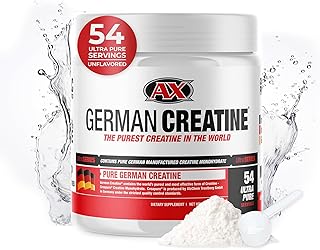
Co-dergocrine
Description
Co-dergocrine, sometimes referred to as ergoloid mesylates, is a medication derived from ergot alkaloids that has been used primarily in elderly patients. While it was initially thought to improve cognitive function by increasing cerebral blood flow, its exact mechanism of action is still being investigated. This article provides a comprehensive overview of co-dergocrine, covering its uses, dosage, potential side effects, and current research.
Quick Overview: Co-dergocrine At-a-Glance
- Key Benefit: May improve cognitive symptoms associated with age-related decline, particularly in the elderly.
- Primary Mechanism: Thought to enhance cerebral metabolism and influence neurotransmitter systems.
- Best For: Elderly individuals experiencing mild to moderate dementia or cognitive impairment.
- Typical Dose Range: 1.5 to 2 mg three times daily, or 4.5 mg once daily.
- Key Caution/Consideration: Use with caution in individuals with slow heart rate or those taking CYP3A4 inhibitors.
Table of Contents
Categories & Effectiveness
Learn about our rating methodologyCognition
Mental Acuity
4/10Moderate evidence of effectiveness
Energy & Alertness
Mental Stamina
4/10Moderate evidence of effectiveness
Mood & Stress
Apathy Reduction
4/10Moderate evidence of effectiveness
Mood Elevation
4/10Moderate evidence of effectiveness
Dosage & Side Effects
Recommended Dosage
Potential Side Effects
Bioavailability & Half-Life
Interactions & Stacks
Recommended Products
German Creatine - Micronized Creatine Monohydrate Powder, 99.99% Pure Creapure for Muscle Growth, Strength & Performance, Supports Muscle Recovery, 3rd Party Tested, Unflavored - 270g (54 Servings)
- Rated 4.6 stars by 2,809 customers
- Premium quality ingredients
BeSerene IR | GABA & L-Theanine | Instant Relief Topical Cream | 1.9 OZ
- Rated 4.4 stars by 38 customers
- Premium quality ingredients
MoleQlar Omega 3 90 Kapseln - hochdosiert mit 1000mg Qualitäts-Fischöl pro Kapsel - 2250mg DHA/EPA pro Portion - Triglyceridform - frei von Pestiziden & Schwermetallen
- Rated 4.9 stars by 33 customers
- Premium quality ingredients
As an Amazon Associate we earn from qualifying purchases. Prices and availability are accurate as of the date/time indicated and are subject to change.
Benefits by Use Case
Mild to Moderate Dementia
Co-dergocrine is used to manage symptoms of mild to moderate dementia in elderly patients, potentially improving cognitive function and overall well-being. However, its efficacy is debated, and its use is less common with newer treatments available.
Cerebrovascular Insufficiency
While historically used for cerebrovascular insufficiency, modern evidence supporting this application is limited. The mechanism was initially thought to involve vasodilation, but this is now less emphasized in favor of metabolic enhancement.
Mechanism of Action
Frequently Asked Questions
Where to Buy Co-dergocrine
Based on quality, price, and customer reviews, here are our top recommended Co-dergocrine supplements:
German Creatine - Micronized Creatine Monohydrate Powder, 99.99% Pure Creapure for Muscle Growth, Strength & Performance, Supports Muscle Recovery, 3rd Party Tested, Unflavored - 270g (54 Servings)
- Rated 4.6 stars by 2,809 customers
- Premium quality ingredients
BeSerene IR | GABA & L-Theanine | Instant Relief Topical Cream | 1.9 OZ
- Rated 4.4 stars by 38 customers
- Premium quality ingredients
Mariendistel Artischocke Löwenzahn Komplex - 120 Kapseln - Hochdosiert mit 80% Silymarin - Ohne Magnesiumstearat, vegan und produziert in Deutschland
- Rated 4.5 stars by 19,813 customers
- Premium quality ingredients
As an Amazon Associate we earn from qualifying purchases. Prices and availability are accurate as of the date/time indicated and are subject to change.
Summary & Expert Opinion
- Key Strengths: May offer some benefit in improving cognitive function and overall well-being in elderly patients with dementia.
- Key Weaknesses: Efficacy is debated, and its use has declined with the advent of newer treatments.
- Recommendation: Should only be considered under the guidance of a healthcare professional, especially when newer treatments are not suitable or available.
For those interested in a deeper dive, Co-dergocrine's purported mechanism of action is complex and not fully elucidated. While initially thought to improve cognitive function by increasing cerebral blood flow, current research suggests a more nuanced role in modulating neurotransmitter systems and enhancing cerebral metabolism. Specifically, it's proposed to influence adrenergic, serotonergic, and dopaminergic neurotransmission, potentially compensating for both hyperactivity and deficits in these systems.
From a pharmacokinetic perspective, Co-dergocrine is rapidly absorbed but exhibits limited bioavailability (around 25%) due to extensive hepatic first-pass metabolism. Its biphasic elimination half-life suggests a complex distribution and elimination process, with an initial rapid phase followed by a slower terminal phase. This complex pharmacokinetic profile may contribute to the variability in individual responses to the drug.
It's also important to note that many clinical trials evaluating Co-dergocrine were conducted before the establishment of modern diagnostic criteria for dementia. This makes it challenging to interpret the results and determine its efficacy in specific dementia subtypes, such as Alzheimer's disease or vascular dementia. Furthermore, the drug has rarely been compared directly with newer, centrally active agents, limiting our ability to assess its relative effectiveness.
For the "nerd" reader: Co-dergocrine is a mixture of four dihydro derivatives of ergotoxine, specifically dihydroergocornine, dihydroergocristine, dihydro-alpha-ergocryptine, and dihydro-beta-ergocryptine. These components may have varying affinities for different receptors in the brain, contributing to the drug's complex pharmacological profile. The drug's interactions with CYP3A4 inhibitors are also a significant concern, as these interactions can lead to increased plasma concentrations and a higher risk of ergotism, a potentially fatal condition.








